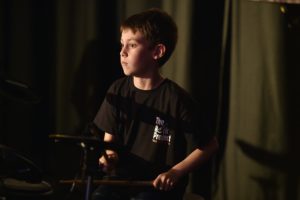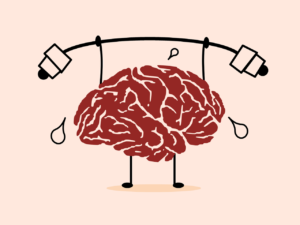

It’s very interesting when you watch children, particularly when they are with their friends. They almost become different people and their confidence can grow – or flounder – depending on the reaction they get. Consequently, belonging in a community is so important to children – and adults – and we pride ourselves at The Rock Project Berkshire that we achieve this. We create communities for our students to thrive in and develop, by being around other like-minded kids.
These communities, however, offer so much more with the addition of music.
Music has that rare ability to touch your soul and resonate with you. It is this aspect that helps to draw children out of their shells and help define their inner world. Music is responsible for revolutionising and defining youth culture, language, attitudes, and fashion. Often it’s about breaking boundaries, social rebellion, and exploring those feelings that children, and particularly teens, struggle to comprehend. Sharing an affinity with a band gives them a sense of belonging, and finding where they fit in helps them to better understand themselves.
Hearing a band or musician sing about something that resonates with them gives children the confidence to perhaps start talking about the subject themselves. However, add learning a musical instrument to the mix and this emotional connection with music is further enhanced. It opens up the knowledge of the power of music and how it can be used to express feelings, political views, send a message to someone. It connects and unites and this is so important for children, and particularly teens. We certainly see this in our classes and the difference between the juniors and seniors, where meaningful friendships are forged and new bands with new sounds and poignant song words are being created.
Train Your Brain

Learning music also gives students an edge over their peers as many of the skills needed to learn – memory, perseverance, self-discipline, dedication, enjoyment, fine motor skills – also contribute to long-lasting positive changes in the brain.
This helps with concentration and, importantly, self-esteem.
Researchers at Bournemouth University and Queen’s University Belfast have discovered that music therapy reduces depression in children and adolescents with behavioural and emotional problems. In partnership with Every Day Harmony (the brand name for Northern Ireland Music Therapy Trust), the researchers found that children and young people, aged 8-16-years-old, who received music therapy had significantly improved self-esteem and reduced depression compared with those who received treatment without music therapy.
The study, which was funded by the Big Lottery Fund, also found that young people aged 13 and over who received music therapy had improved communicative and interactive skills, compared to those who received usual care options alone. Music therapy also improved social functioning over time in all age groups.
So, the next time your children pester you for a new game that claims to help brain development – get them along to a free taster session (click HERE!) at The Rock Project Berkshire and see how their brains, confidence and self-esteem develops.
Harmeet August 15th, 2017
Posted In: Uncategorised